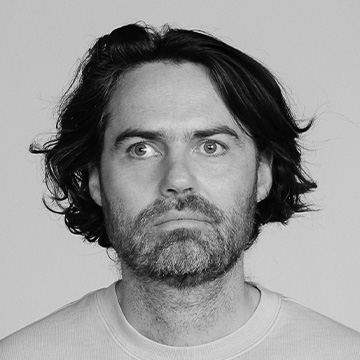Remakes, Reboots and Revivals: A Re-versioning – 1400 words

Remake, reboot, revival. It seems as if these words are being thrown around the movie realm like skittles and punches at a Katy Perry concert. Amongst this lolly scramble of movie terminology, ambiguity is sure to arise. What does it mean to call a film a reboot instead of a remake? Isn’t a reboot the same as a revival? Why have film studios suddenly become reluctant on using the term “remake”? It’s confused me for a while, and I want to be profused.
Let’s get something to work off first. Here’s how Oxford defines the three movie labels:
Remake: [verb] make (something) again or differently
Reboot: [verb] (with reference to a computer system) boot or be booted again
Revival: 2 [noun] an instance of something becoming popular, active, or important again
And for shits ‘n’ giggles, let’s check Wikipedia:
Remake: A remake is a piece of media based primarily on an earlier work of the same medium
Reboot: To discard all previous continuity in a fiction series and start anew
Revival: A revival is a restaging of a stage production after its original run has closed. New material may be added. A filmed version is said to be an adaptation and requires writing of a screenplay
It should probably be stated that both these sources fail to consider social rhetoric and contextual influences, but nevertheless, Wikipedia pretty much stomps Oxford into the ground in regards to what can help us define a movie remake/boot/vival. Funnily enough, I happened to run into this during my Wiki-search:

If you draw your attention to the intrusive red arrow, you’ll see it’s pointing at the word “Re-versioning.” While we rarely use that term to describe a movie, it did remind me of another hyphenated pop label that only adds to our bothersome pot of ambiguity: the “re-imagining.” I’ll get into that later though. For now, let’s look at the word “Remake”.
The common idea of a movie remake is simple: a previously made film is made again. There are usually many changes to the newer version (direction, dialog, style) but the core elements stay the same, much like how Martin Scorsese took the Hong Kong hit Infernal Affairs, gave it a Western licking and spat out The Departed. However, it seems like over the past few years, films studios have been very reluctant to use the word. Why? Because “Remake” became synonymous with “Inferior” or, to be quaint, “Crap”. At least to the public eye.
But then again, we’re absolutely justified in believing that stigma. Just look at what we’ve been fed over the past couple of years. The remake of Psycho? Crap. The remake of Clash of the Titans? Crap. The remake of The Wicker Man?
Now we all know a number of remakes that have been more than acceptable (3:10 to Yuma, Assault On Precinct 13, Dawn of the Dead). Unfortunately, the crap:good ratio for film remakes is at heaps:bugger-all. Suffice to say, many movie-goers respond negatively to the word “Remake”. How can you avoid such stigma? Easy, replace the word. Hence, the current era of the reboots.
Ignoring the useless Oxford definition, a movie reboot (seemingly) refers to a film that dismantles a previously established movie series in favour of a noticeably different attempt. Essentially, you take a franchise, let it rot, rage-quit and try again. Such was the case with J.J. Abrams’ Star Trek and such is the case with the upcoming retelling of Superman’s origin story (as needless as that is).
A reboot does not need to involve a remake or an origin retelling however, it simply needs to send a “Screw you” to the previous continuity of a film series, as was the case with Christopher Nolan’s Batman Begins. Instead of riding the wave of the previous entries, Nolan hit the reset button on the franchise.
While “Remake” is cursed with its negative association, “Reboot” isn’t suffering quite as cruel of a fate. With Nolan’s Batman reboot, Campbell’s Casino Royale reboot and Cameron’s Pocahontas reboot, we’ve learned to be a bit more lenient on the word, given its slightly more even crap:good ratio.

The best kind of ReBoot.
Now we’re left with “Revivals”. This is where the Oxford definition actually becomes useful. In relation to film, a revival is seen as a remake that is reactivating or repopularising a previously dead series (for lack of a better adjective). Ironically, horror’s been the recent genre of choice when it comes to bringing franchises back from the dead, with recent (albeit terrible) revival/remakes of Halloween, Friday the 13th and A Nightmare on Elm Street.
“But Liam,” you might proclaim “aren’t these qualified as reboots too?” Why yes they are, you clever little cookie. But I dare not try to contradict myself, so let me explain exactly what a revival is. It is both a remake and a reboot. “Whaaaaaaaa-!?” you may reply, if that just blew your mind (which it probably didn’t).
To make this easier to understand, I’m gonna reboot a little Year 12 statistics.

Venn diagrams. They're awesome.
This is the definition relationship I am proposing to you. If something is both a remake AND a reboot, it is a revival.
However, there are numerous films that can’t quite decide on what they want to be. Martin Scorsese doesn’t consider The Departed to be a remake of Infernal Affairs. Why? Aside from it being not crap, I can’t think of any reason to not believe it is (my apologies for the double negative). As far as I can comprehend, it doesn’t make a radical departure from the original.
X-men: First Class has also been wandering around that grey area too. Many are claiming it to be a reboot of the series while the filmmakers are more “yeah…nah…kinda…sorta…” about it. Why believe it’s a reboot instead of a prequel? Well, like “Remake” we’ve developed a negative association to “Prequel” as well, so it makes sense that the studio would eclipse that demon term with “Reboot”.
But then again, First Class never extensively violates the continuity of the X-men movie series. Hell, the first scene is pretty much shot-for-shot with the first X-men movie. However, there are two slight continuity errors involving Last Stand and Wolverine: Origins that I won‘t detail. Considering how most would like to pretend that those last two films didn’t exist, maybe First Class is a reboot of sorts, in which it sticks to the continuity of the first two films of the series while sticking its middle finger to the following two.
Perhaps this is where the confusion lies. With this in mind, is it now fair to class First Class a reboot? Well, yeah. Well, nah. Kinda. Sorta. I guess?
Then you’ve got book adaptations. John Wayne’s True Grit was based off the book, as was the Coen Brothers’ version. Would we class 2010’s True Grit as a remake of the 1969 classic. Some would. I wouldn’t. As far as I know, the Coen brothers were more faithful to the book than The Duke’s Grit. Their main source was that novel, despite the fact that they were beaten to the filming punch over 40 years ago.
Additionally, Total Recall is said to be getting a remake. But should we even call it that? I already rambled on about my impressions of the face-exploding tri-boob of awesome that was Arnie’s version, but this “remake” is said to be more faithful to Phillip K. Dick’s book We Can Remember It for You Wholesale.
So is this new Total Recall a remake of Total Recall? No, it’s not. It’s a remake of the book. So why don’t they call it We Can Remember It for You Wholesale instead? Simple. That name’s stupid.
What do we call these particular adaptation remakes then? Well, to me, it is an alternate movie version of a particular source material. A re-version if you will. You’ll often hear filmmakers pin the word “re-imagining” instead.

Still awesome.
I’ve tried pretty darn hard to clarify what is meant by calling a film either a remake, a reboot or a revival (I didn‘t even get into Americanizations). This isn’t the be-all end-all definition of the three terms. Language changes, and so do buzz words. Give it another 10 years and we’ll probably drop the word “reboot” as well, right after they release Friedberg and Seltzer’s Airplane, Rob Zombie’s Saw and Ben Stiller’s North By Northwest.
I’m sure I’ll look back at this post in a decade and update it too.
Or remake it… revive it… reboot-
whatevs.


















